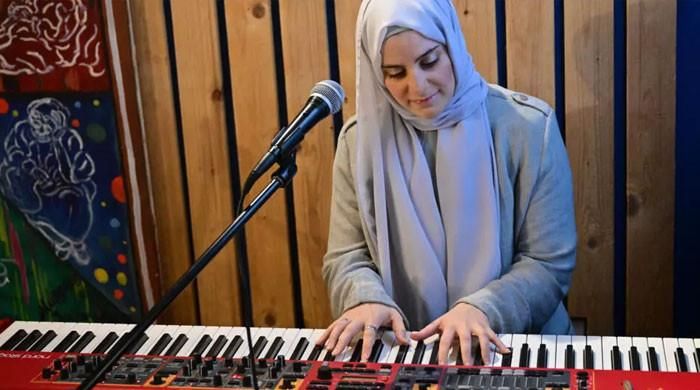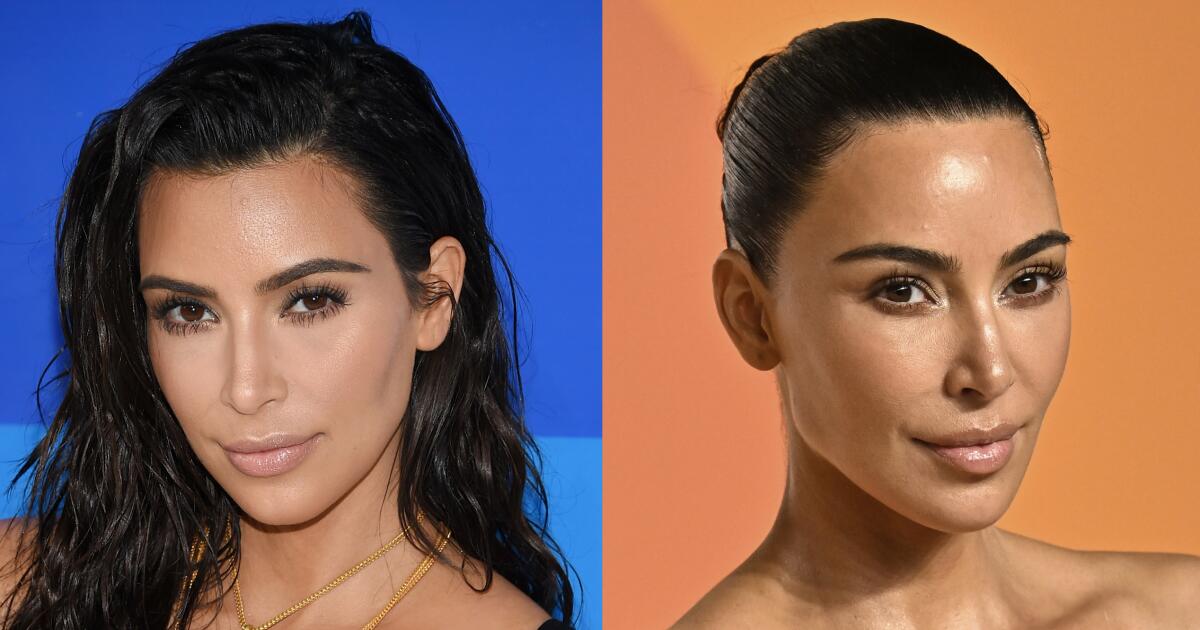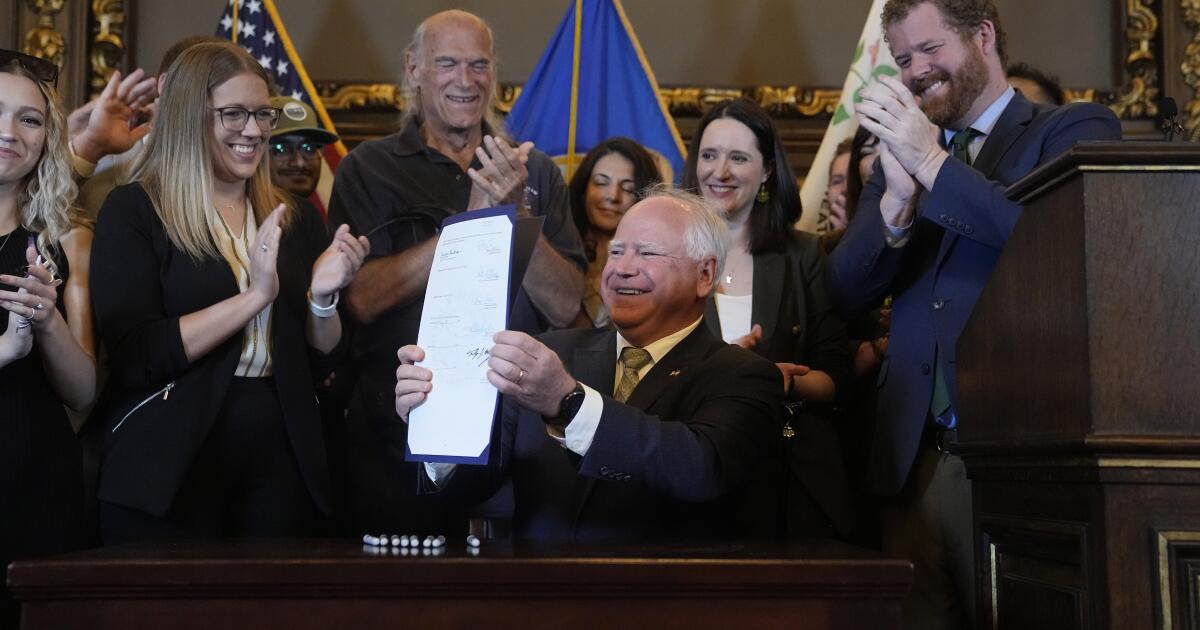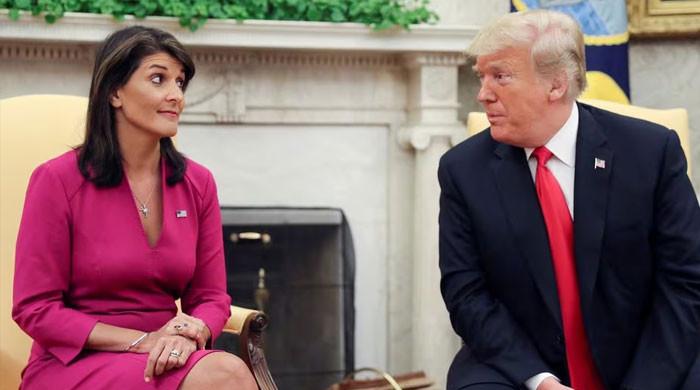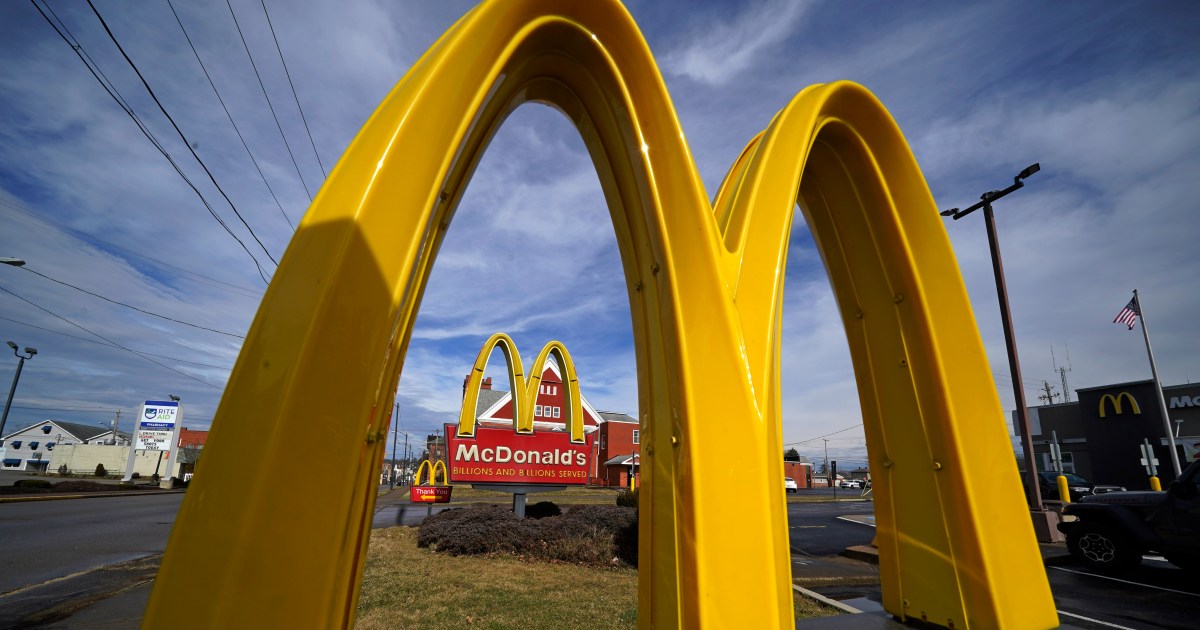In a recording studio in Dubai, a hijab-clad Ghaliaa Chaker tunes her guitar and sings original songs as she builds a career that's garnering attention for more than just her music.
The 26-year-old Syrian, who grew up in the United Arab Emirates, has become a social media sensation, with 437,000 followers on Instagram and millions of views on her YouTube channel.
She offers not only a unique sound but also an unusual perspective in a region where artists wearing the hijab, the characteristic veil of Muslim women, are few.
“I hope I have paved the way for other female singers who wear hijab,” Chaker said. AFP In the studio.
“It's a very beautiful thing to know that you have […] “We give a push to a girl who has many dreams and cannot achieve them because she has never seen another girl do the same.”
Chaker, a keen motorcyclist who is part of a hijab-clad motorcycle crew in Dubai, began composing and writing lyrics at the age of 16.
She was inspired by Nedaa Shrara, a veiled Jordanian singer who won “The Voice,” the Arabic version of the popular television talent show, in 2015.
Shrara had sparked controversy among some Arab fans who were not used to seeing a singer with her head covered.
But for Chaker, who says she often receives criticism online, Shrara was a symbol of “self-confidence.”
After watching it, “I told myself I could do it too,” Chaker said.
Chaker's first song, composed in English, was picked up by Dubai radio stations in 2018, marking the start of his musical career.
He currently sings mainly in Arabic, at a time when the regional music scene is witnessing the emergence of young talents with innovative sounds.
The green-eyed singer said the headscarf has never been an obstacle in her life.
“There is nothing I wanted to do that I didn't do because of wearing the veil,” Chaker said.
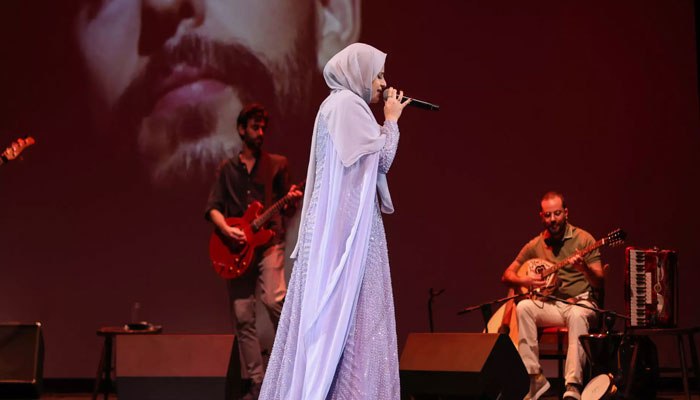
However, the issue of female singing has always been controversial in conservative Islamic societies.
Chaker said her immediate family has always been supportive, but her relatives in Syria “were very surprised at first,” mainly because they were afraid of how people would react.
She said she receives a lot of “negative comments” on social media, including from family and friends.
“It bothers me, of course, but I try to remember the positive comments and how much people love my music,” he said.
Chaker traces his artistic influences back to his early upbringing in Al Ain, a former desert oasis and now a city in Abu Dhabi, one of the seven sheikhdoms of the United Arab Emirates.
At home, her father would blast Arab singers like Fairouz, an iconic Lebanese singer, and Egyptian diva Umm Kalthoum. Chaker's mother preferred Western music, including Elvis Presley.
“The musical mix in the house was always rich,” he said, influencing his sound which he describes as a mix of R&B, hip hop, electro pop, indie and jazz.
A multi-instrumentalist, Chaker credits his father for his love of drums, guitar and piano, all instruments he plays.
Instead of giving her toys when she was a child, he would buy her new instruments, she said.
The Middle Eastern darbuka drum is “closest to my heart because I often played it with my father, who loves it, and it's the basis of the Eastern rhythm,” he said.
In addition to Arabic and English, Chaker sometimes sings in Turkish, Armenian and Persian.
The singer, who performed in the Lebanese capital Beirut in August, said she wants to take her music beyond the Middle East.
“It is very important to me that my music is heard in Europe, in America, in Australia, all over the world, maybe even in Latin America,” he said, adding that he hopes to “collaborate with many artists from different countries.”
“It's time the Western world knew how beautiful our music is.”

